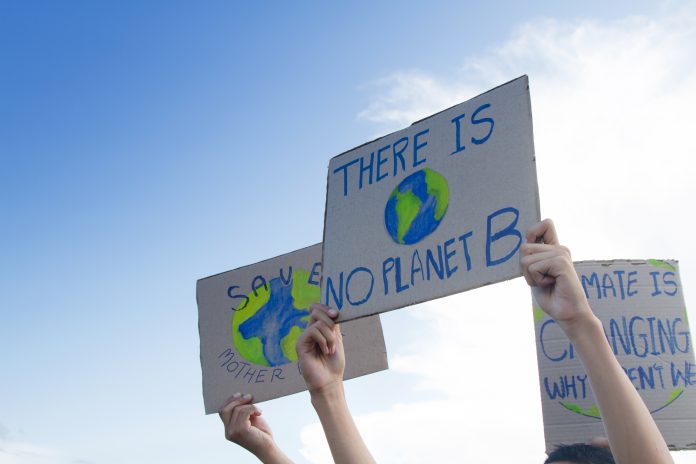George Adams, Director of Energy and Engineering, SPIE UK, provides insight into how the UK might be able to decarbonise the economy in line with COP26 goals
As COP26 is fast approaching, world leaders are set to descend on Glasgow to find a strategy for implementing the Paris Agreement goals before it’s too late. For this UN Climate Change Conference UK 2021, 200 countries are being asked for their plans to cut emissions by 2030, but where is real change going to happen?
The UK has proposed five themes:
- Adaptation and resilience for societies against climate change
- Nature: nature-based solutions to protect ecosystems
- Energy transition: ending reliance on fossil fuels
- Decarbonised transport: transitioning to electric vehicles
- Finance: increasing investment in sustainable infrastructure and greening finance
As the world warms because of fossil fuel emissions caused by humans, extreme weather events linked to climate change – including heat waves, floods, and forest fires – are intensifying. The past decade was the warmest on record, and governments agree urgent collective action is needed.
Improving energy policies as a path to decarbonising 30 million buildings
In order to limit global warming to “well below” 2°C above pre-industrial levels, and ideally, to keep it below 1.5°C, we must focus on improving policies on energy efficiency including a widespread rollout of renewable technologies to reduce the carbon impact of buildings across the globe.
One of the UK’s biggest challenges is to decarbonise around 30 million buildings. Many of these are old, poorly insulated, and have carbon-based energy supplies. Even though renewable energy production has increased, world and national political barriers, including the lack of policies and regulations favouring the development of renewable energy technologies, remain significant. This is a critical challenge and cannot be overcome without considerable intervention by world governments and supporting organisations; we are at the tipping point!
The UK Environment Agency has also warned of the severe consequences should a rise of 2°C happen. These include winter rainfall up by 6% by the 2050s and 8% by the 2080s (compared with 1981-2000); London’s sea level up by 23cm by the 2050s and 45cm by the 2080s. Although our planet may never run out of water, we must remember that freshwater is not on tap and humans everywhere need it. Half of the world’s fresh water is in just six countries and about a billion people live without enough being drinkable. The world’s changing climate has been linked to an increased incidence of droughts that can greatly diminish freshwater supplies in a region.
For the survival of humanity, we need to restore nature
For far too long, we have taken advantage of our biodiversity for human development and have forgotten nature’s vital role in climate change mitigation, resilience, and adaptation. A recent report from The Wildlife Trusts shares examples of how natural habitats such as peat, woodland and seagrass can absorb huge amounts of carbon. We need to consider climate and biodiversity goals one and the same as one cannot survive without the other.
Transforming the UK
The UK government has announced new climate change commitments on course to reduce carbon emissions by 78% by 2035. To reach net-zero emissions by 2050, the Climate Change Committee’s report accepted by the government says low-carbon investment must scale up to £50bn a year in the UK. 2050 is a well-recognised plan, however, scientists have advised it is too late, which is why the utmost drive is required from both the UK government and all of those represented at COP26 to reduce global risks over the next 10 years.
Particularly the energy supply companies, transport, and the Built Environment as a whole need radical changes. Not talk-talk but action. There are still far too many advisory organisations pushing around strategies, ideas, narratives and conferences, the time is now for those that can deliver to step up and create real change.
Prince Charles, in a recent interview, pointed out that: ”The young feel nothing is ever happening” on climate change. It is time for this sense of malaise to be brought to an end at COP26, and for world leaders to change their mindset from the business-as-usual approach of today into a planetwide mindset for tomorrow. This is no longer just about science, economics, and technology; it is about the survival of all life on Earth as we currently know it. The world platform of COP26 must be used to bring together the key concerns of the climate emergency, global bad air quality, social safety, biodiversity, precious resources, the health of the sea and the land, water, and human wellbeing.
We must remember that a failure to invest at least 2% of global GDP will have consequences. Current estimates show that the damage could end up costing 20% of GDP. COP26 could and should be a new starting point to address and action the growing global concerns of the planet, including all life on it and most importantly, restoring the world so it exists for future generations.
Editor's Recommended Articles
-
Must Read >> Corporate sponsors say COP26 is “very last minute”
-
Must Read >> Together for Climate Action: UCL’s COP26 Campaign
-
Must Read >> The leadership challenge of COP26, 2021














